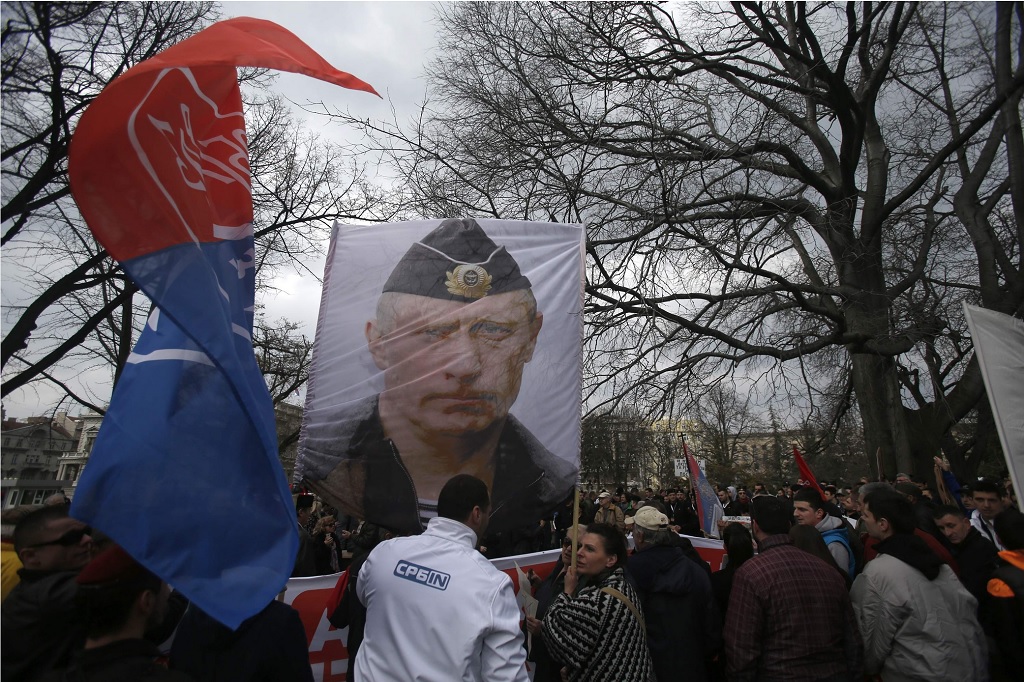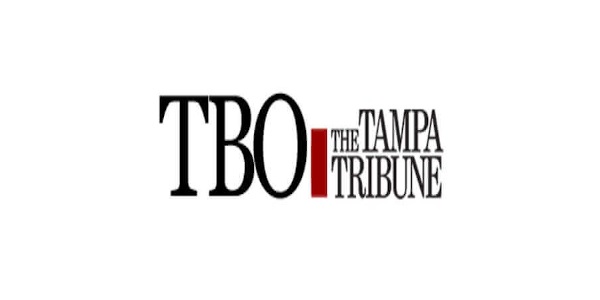The Tampa Tribune / TBO.com
Military News

TAMPA — On a continent with no shortages of security challenges, the deputy commander of North Atlantic Treaty Organization Forces in Europe says refugees pouring in from conflicts in the Middle East present the greatest short-term security risk while Russia and jihadis are creating huge problems, too.
“There is security threat which is obvious in the capability of extremist groups to infiltrate our nations … by means of piggybacking on the refugee crisis,” General Sir Adrian Bradshaw said in an interview with the Tribune. “Of course, everybody has been very alive to that threat from the beginning.”
Bradshaw, a British officer, is responsible for building up forces for missions and coordinating efforts between NATO and the European Union.
Last year, more than 1 million refugees entered Europe by sea, according to the United Nations Refugee Agency. So far this year, there have been more than 110,000.
More than 40 percent are fleeing Syria, but there are also a large number of refugees arriving from Afghanistan, Iraq and even Iran.
While the bulk of the effort in dealing with the refugees falls on civilian authorities and social service agencies, NATO does play a role.
“Our contribution is mainly potentially to be seen around the margins of Europe, where instability exists,” Bradshaw said. “NATO engages in some activity in the Aegean to carry out reconnaissance, information gathering, surveillance, to contribute to the effort to understand the nature of the problem in the region, in order that other authorities can deal with it.”
The NATO response is still developing, Bradshaw said, “but this is probably the primary security threat in the short term.”
Bradshaw was speaking after delivering a keynote speech about strategic challenges facing NATO to the Global SOF Foundation Symposium at the Innisbrook Country Club in Palm Harbor.
There are other major issues confronting NATO. A resurgent and still nuclear-armed Russia, which has annexed Crimea, invaded parts of eastern Ukraine and had one of its jets shot down by NATO member Turkey. And the so-called Islamic State and other jihadi groups present security challenges.
“Two of the most pressing challenges are, firstly, the issue of how to deal with Russia, which over recent years and months has shown a predilection for ignoring international law, and breaching the sovereignty and integrity of nations close to it,” Bradshaw said. “And a challenge for NATO is how to ensure there are no miscalculations on the Russian part with respect to members of NATO.”
Russia’s nuclear arsenal makes it a particularly dangerous adversary, Bradshaw said.
“It is a nuclear-armed state and we must be aware of the dangers that any sort of conflict with Russia could slide out of control. The approach is to refresh the continuum of deterrence and to ensure that Russia understands that there are no opportunities for aggression and misbehavior with respect to NATO, but NATO is rock solid on the principal enshrined in our Article 5 treaty of collective defense and collective deterrence.”
Article 5 holds that an attack on one NATO member is an attack on all. It was used for the first and only time following the 9/11 attacks on the United States.
NATO, Bradshaw said, “needs to ensure conditions are set for peaceful coexistence and no misunderstandings.”
Specifically, Bradshaw points to the NATO Readiness Action Plan approved two years ago.
The plan calls for “assurance measures” for NATO member countries in Central and Eastern Europe to reassure their populations, reinforce their defense and deter potential aggression.
It calls for land, sea and air activities in, on and around the NATO’s eastern flank, “which are reinforced by exercises focused on collective defence and crisis management.”
It includes rapid response forces, prepared to react to developing problems.
Bradshaw said NATO is in the process of delivering on that plan.
But because Russian military doctrine calls for training of nuclear forces along with conventional forces, and because their incursions into Ukraine have involved a wide range of unconventional, cyber and information warfare, NATO must consider a wide range of options, Bradshaw said.
“Nuclear deterrence remains in place and remains important, but it needs to be part of considerations of what it is that creates deterrence in the modern era. We need to go well beyond nuclear and military deterrence and embrace the concept of hybrid deterrence where aggression in any area, whether it is economic, political, propaganda, across the whole panoply of non-military means, that sort of aggression is also deterred.”
A recent boost requested by President Barack Obama in a Defense Department effort to assist Europe, called the European Reassurance Initiative, will “help hugely,” Bradshaw said.
Obama called for quadrupling funding from last year, to $3.4 billion, for increased U.S. military activities in Eastern and Central Europe in response to Russian aggression. Among other things, additional combat vehicles and supplies will be shipped to Europe, to reduce force deployment times and enable a rapid response to potential contingencies, according to the White House.
“This will help hugely in providing a measure of leadership and an example to others to augment what we already have collectively signed up to with the Readiness Action Plan,” Bradshaw said.
Meanwhile, further to the east, jihadis are creating havoc for Europe as well, Bradshaw said. And while NATO has not been called in to fight against Islamic State or other groups operating in Africa, most of its member countries are part of the coalition fighting Islamic State in Iraq and Syria.
“The challenge posed by Daesh/ISIL and the wider Islamic extremist movement is quite profound,” Bradshaw said. And while NATO is not directly involved in the fight, “we need to be alive to the potential of the contribution we can make.”
Bradshaw said he has been urging NATO to take a role as “providing the intellectual horsepower behind developing a holistic military strategy, which most importantly must be integrated within a grand strategy that includes political, economic, diplomatic and wider non-military elements.”
To make that happen, NATO would identify regional centers of Islamic extremism, what destabilizing factors are contributing to the environment that allows groups like Daesh to thrive, and how it can help to build up security and stability to prevent groups like it from taking root.
“That would constitute a military strategy,” Bradshaw said.
Adding to the precarious position faced by NATO are tensions between NATO member Turkey and Russia, created by the ongoing, multifaceted conflict in Syria.
In November, a Turkish warplane downed a Russian fighter, with Turkey claiming its airspace was violated and Russia saying its plane was in Syrian airspace. Russia has retaliated economically and brought additional military resources into its base in Syria, adding to the ongoing tensions.
That adds to the uncertainty facing Europe and complicates the efforts to fight Islamic State.
“Turkey is a hugely important member of the alliance. It is a huge contributor to the alliance’s military capability, operations and her interests need to be taken into account,” Bradshaw said.
The potential for wider conflict between Turkey and Russia presents NATO with a delicate balancing act, Bradshaw says.
NATO “needs to oversee our collective relationship with Russia very carefully and strenuously avoid the possibility of conflict developing while at the same time, being absolutely clear about the territorial integrity of NATO nations within the alliance.”

Original URL: https://www.tbo.com/list/military-news/natos-top-concerns-refugees-russia-and-jihadis-20160224/

